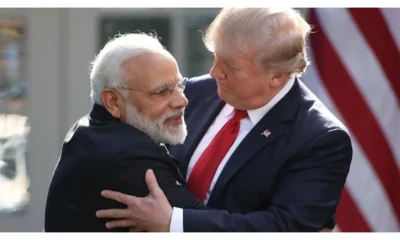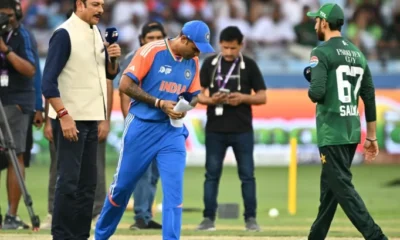[vc_row][vc_column][vc_column_text]The Supreme Court has rejected pleas from over 750 army personnel challenging its decision in July 2016 diluting the protection from prosecution, under Armed Forces Special Powers Act (AFSPA) in disturbed areas, for alleged fake encounters.
The court said the Act must not give officers the right to use “excessive or retaliatory” force.
Hearing the matter on Friday, the Supreme Court bench of Justices Madan B Lokur and UU Lalit said, “We are aware of the difficult situation faced by soldiers in disturbed areas. That is why we repeatedly asked the Attorney General on action taken on complaints of fake encounters for the past 15-20 years. When we found nothing has been done, we handed over the investigation to CBI in only those cases where a prima facie finding on possible fake encounters had been recorded by high court, judicial commission, Justice Santosh Hegde Commission or NHRC.”
The court said the Army had the option of opting for a court of inquiry even as there were several cases where the Gauhati high court granted compensation and Manipur paid, indicating the possibility of fake encounter, reported The Times of India (TOI).
The apex court clarified that protection under AFSPA would be available to soldiers for every genuine encounter.
The Supreme Court in its July 8, 2016, and July 14, 2017, judgments ordered registration of FIRs in nearly 100 of the 1,528 cases of alleged extra-judicial killings by Manipur police and the Army during 1985-2010.
In July 2016, the top court asked for a thorough probe into the alleged killings in Manipur and held that “excessive or retaliatory” force by the armed forces was not permissible under AFSPA, said a report in The Hindustan Times (HT). It also noted that democracy would be in grave danger if citizens were killed merely on suspicions.
In 2017, the top court ordered a Central Bureau of Investigation (CBI) investigation into 97 alleged cases of extrajudicial killings by the Indian Army, Assam Rifles and the Manipur Police in insurgency-hit Manipur, the HT report noted.
In August this year, while seeking an update on the CBI probe, the bench hit out at the agency for not arresting the officers in murder cases, commenting that CBI was letting “murderers” roam free. It was this comment that provoked the filing of the petitions by the soldiers.
The petitioners argued that the verdict, given in a Manipur fake encounter killing case, put the lives of security officers at risk and exposed them to criminal prosecution for carrying out counter-insurgency operations.
The Centre, too, came out in support of the officers, arguing that the verdict has had a “demoralising” effect on soldiers fighting terrorism in Jammu and Kashmir. In its submission, the Centre said that armed forces were operating in an “altogether different situation” in disturbed areas, and a balance has to be struck.
Representing the Centre, Solicitor General Tushar Mehta said, “We cannot shut our eyes to the unusual situation faced by soldiers in disturbed areas. Their hands must not shake while fighting terror. At the same time, a balance needs to be struck to ensure that a soldier does not become trigger happy. Let there be a debate on the issue of striking a balance. Till then, the investigations order by the SC need to be stalled. We cannot demoralise our armed forces.”
The court responded, “Who has stopped you from coming out with a mechanism to strike a balance? Why does it require our intervention? These are issues you (the Centre) need to decide, not the courts. We are not stopping you from debating. You can debate and find out a mechanism for striking a balance between armed forces’ operations against extremists and protecting the rights of innocent. When there is a loss of life, even in an encounter, should not the human life demand that it should be looked into and investigation should be done?”
Advocate Aishwarya Bhati, appearing for the soldiers from the army, told the bench that the plea should be heard along with the main matter, which relates to alleged extrajudicial killings in Manipur, the HT reported. But the bench disagreed with her contention and said the two issues were separate.
Bhati contended the directions in the Manipur encounter case on AFSPA were contrary to an earlier verdict of the top court. The bench, however, retorted that the judges were forced to pass orders because the Centre had failed to give an assurance that action would be taken against members of armed forces.
“If no action is taken at all by the authorities under the Army Act, you cannot say that no investigation can go on,” the bench said.
Bhati clarified the petitioners were not asking for complete immunity but protection as they were facing “proxy war” in AFSPA areas.
“Today, we are not giving any clean chit to either side,” the court remarked, adding that CBI’s final investigation report would be subject to a court’s scrutiny, according to the HT report.
[/vc_column_text][/vc_column][/vc_row]


 Latest world news11 hours ago
Latest world news11 hours ago
 India News11 hours ago
India News11 hours ago
 India News11 hours ago
India News11 hours ago
 India News10 hours ago
India News10 hours ago
 LATEST SPORTS NEWS10 hours ago
LATEST SPORTS NEWS10 hours ago
 India News7 hours ago
India News7 hours ago
 India News3 hours ago
India News3 hours ago
 India News2 hours ago
India News2 hours ago











